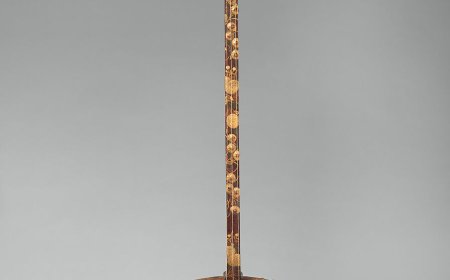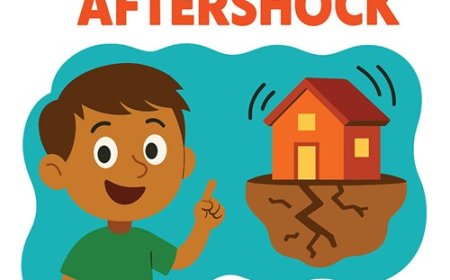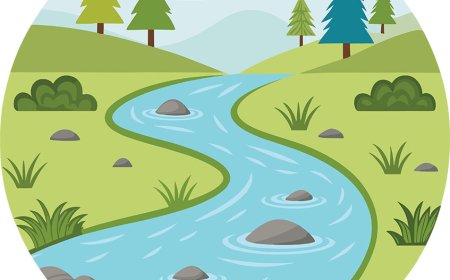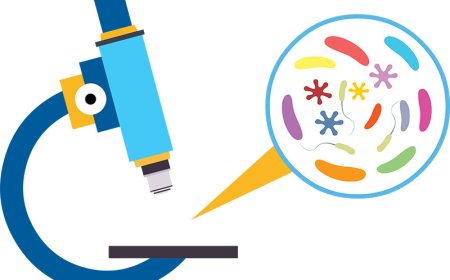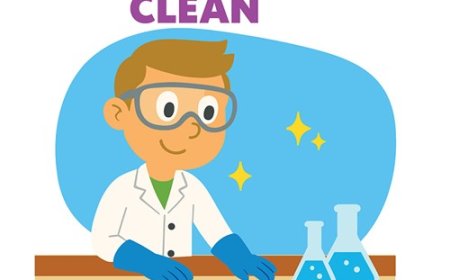What Is a Tsunami? Causes, Effects, and Safety Tips for Students
Learn what tsunamis are, what causes them, how they affect coastal areas, and how to stay safe
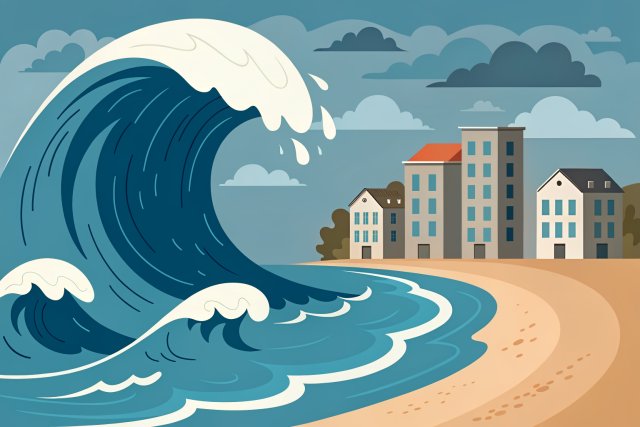
🌊 Tsunamis: Giant Waves That Shake the Coast
🎯 Introduction
A tsunami is one of the most powerful and dangerous natural disasters on Earth. It may look like a regular ocean wave at first, but it can turn into a giant wall of water rushing toward land, destroying everything in its path.
Tsunamis are usually caused by underwater earthquakes, volcanic eruptions, or landslides. These events displace huge amounts of water and send powerful waves across the ocean. Some tsunamis are small and barely noticed, while others can reach 30 feet or more in height and travel at hundreds of miles per hour.
In this article, you'll learn what causes tsunamis, how they affect coastal areas, and how people can stay safe when one is on the way.
🌐 What Is a Tsunami?
A tsunami is a series of very large ocean waves caused by a sudden movement of the ocean floor. The name comes from the Japanese words tsu (harbor) and nami (wave), meaning "harbor wave."
Tsunamis are different from regular waves because:
-
They are caused by shifts in the Earth's crust, not by wind.
-
They can travel across entire oceans.
-
The first wave is often not the biggest-more dangerous waves can come later.
🧬 Scientific Causes of Tsunamis
Tsunamis form when something suddenly moves a large amount of water. The most common causes are:
1. Underwater Earthquakes
-
When tectonic plates shift beneath the ocean, the seafloor lifts or drops, pushing water up or down.
-
This is the most common cause of tsunamis.
2. Volcanic Eruptions
-
An erupting or collapsing volcano can disturb nearby water and create waves.
3. Underwater Landslides
-
When large pieces of rock slide off the continental shelf, they displace water and form waves.
4. Meteorite Impacts (Very Rare)
-
If a large space rock hits the ocean, it could create tsunami-sized waves.
🌍 Where Do Tsunamis Occur?
Tsunamis can happen in any ocean, but are most common in the Pacific Ocean, where there are many tectonic plate boundaries.
High-Risk Areas:
-
Japan
-
Indonesia
-
Philippines
-
Chile
-
Alaska
-
U.S. West Coast
-
Hawaii
🛑 Tsunami Effects and Dangers
Tsunamis can:
-
Flood coastal towns and cities
-
Destroy homes, roads, and bridges
-
Wash away beaches, boats, and forests
-
Cause injuries or death to people and animals
Even after the main wave hits, afterwaves (more waves) can continue to arrive for hours.
🛡️ How to Stay Safe During a Tsunami
Before a Tsunami:
-
If you live in a coastal area, learn the tsunami evacuation routes
-
Be aware of tsunami warning systems or signs posted in your community
Signs a Tsunami May Be Coming:
-
Strong earthquake near the coast
-
The ocean suddenly pulls back, exposing the sea floor
-
Loud, roaring sound from the sea
What to Do:
-
Immediately move to higher ground
-
Do not go to the beach to watch the waves
-
Stay away from rivers and coastal roads
🗺️ Famous Tsunamis in History
| Date | Location | Details |
|---|---|---|
| 2004 | Indian Ocean | Caused by 9.1 earthquake; killed over 230,000 people in 14 countries |
| 2011 | Japan (Tohoku) | Earthquake-triggered tsunami; caused a nuclear disaster |
| 1960 | Chile | Largest earthquake ever recorded (9.5); tsunami reached Hawaii and Japan |
🌟 Interesting Facts
-
A tsunami can travel across an entire ocean in less than a day
-
In the deep ocean, a tsunami wave is only about 1-2 feet tall, but it grows taller near shore
-
Some people have survived tsunamis by climbing trees or hills
-
Tsunami warning systems use buoys, sensors, and satellites
-
The Pacific Tsunami Warning Center is in Hawaii
🧠 Kid-Friendly Summary
A tsunami is a giant wave caused by something shaking the ocean floor, like an earthquake or volcano. Tsunamis can travel really fast and flood the land when they reach the coast. People who live near the ocean need to know how to stay safe and go to high ground when a tsunami is coming.
✨ Key Takeaways
-
A tsunami is a powerful wave caused by underwater movement.
-
Earthquakes are the main cause of tsunamis.
-
Tsunamis travel fast and grow taller as they reach shore.
-
Warning signs include the ocean pulling back and loud roaring sounds.
-
People can stay safe by evacuating quickly to high ground.
📖 Vocabulary Words
| Word | Definition |
|---|---|
| Tsunami | A giant wave caused by a sudden ocean disturbance |
| Earthquake | A shaking of the ground caused by tectonic movement |
| Tectonic Plate | A large section of Earth's crust that moves |
| Seafloor | The bottom surface of the ocean |
| Evacuation | Leaving a dangerous place to stay safe |
| Afterwaves | More tsunami waves that arrive after the first one |
| Buoy | A floating device used to measure ocean data |
| Volcanic Eruption | Explosion of magma and gas from a volcano |
| Landslide | The movement of rock and soil down a slope |
| Warning System | Tools and messages that alert people of danger |
🧩 Interactive Quiz: Tsunamis (12 Questions)
-
What causes most tsunamis?
A) Wind
B) Underwater earthquakes
C) Heavy rain
D) Hurricanes -
What is a tsunami?
A) A spinning storm
B) A giant wave caused by ocean movement
C) A cloud of dust
D) A lava flow -
What is one sign that a tsunami may be coming?
A) Thunder
B) Rising clouds
C) Ocean water suddenly pulls back
D) More sunshine -
What should you do if you see the water pull back from the shore?
A) Swim farther out
B) Stay and watch
C) Run to higher ground
D) Go to sleep -
Where do tsunamis often occur?
A) Mountains
B) Deserts
C) Pacific Ocean coasts
D) North Pole -
How fast can tsunamis travel?
A) 5 mph
B) 20 mph
C) Over 400 mph
D) 1,000 mph -
What tool helps detect tsunamis?
A) Seismograph
B) Buoy and satellite system
C) Thermometer
D) Compass -
What is an afterwave?
A) The first wave
B) A second or third wave that comes after
C) A storm
D) A water spout -
What should you avoid during a tsunami warning?
A) Going to the beach
B) Climbing hills
C) Watching the news
D) Reading books -
What happens to a tsunami as it reaches land?
A) It disappears
B) It gets smaller
C) It gets taller and more dangerous
D) It turns into a hurricane -
What does "tsunami" mean in Japanese?
A) Earth wave
B) Sea monster
C) Harbor wave
D) Ocean crash -
Which country had a tsunami in 2011 that caused a nuclear accident?
A) Chile
B) India
C) Japan
D) USA





























